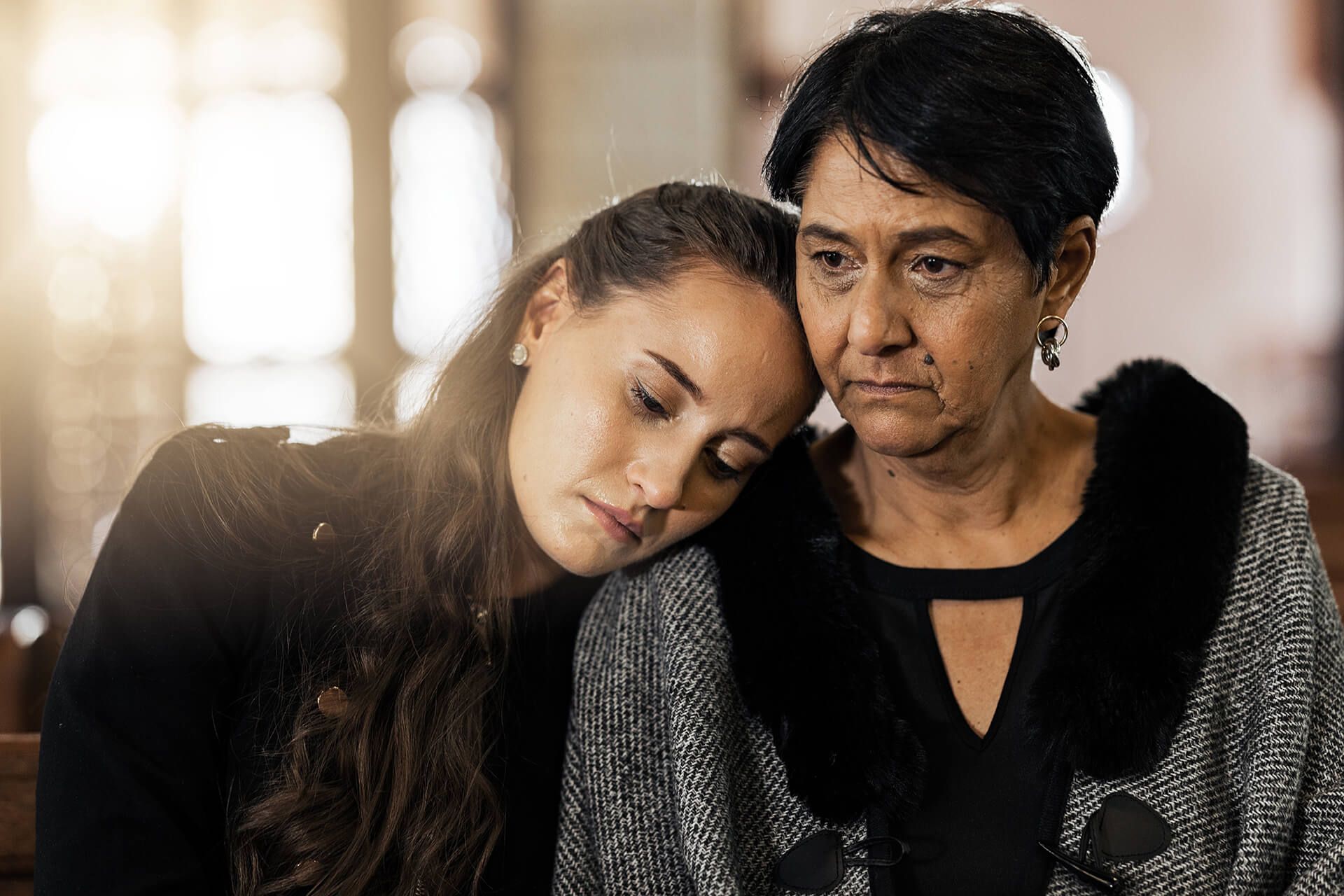How To Prepare For Your First Court Appearance
The time leading up to your first court appearance may be full of anxiety and nervousness. For many people, the thought of going to court is intimidating. Most of us have never set foot in a courtroom besides reporting for jury duty. You probably have a general sense of what a courtroom is like: lots of rules and formalities, but you have never actually sat before a judge.
Learning what to expect during your first court experience will help you stay calm throughout the process.
Research Your First Court Appearance
Whenever you are venturing into new experiences, it is helpful to do some research. We do this when we go on vacation or buy a car, and you probably did this when you shopped around for the right attorney for your case. Educate yourself on courtroom etiquette and jargon. Research your specific situation and determine what to expect during your first court appearance.
Trust your lawyer, but don’t be blind to the proceedings. If you have time, learn the statutes and relevant rulings according to your case. Preparing in this way will help you to relax when your day in court comes. After all, knowledge is power. Jot down any questions and talk to your attorney about any specific points that are causing you to feel apprehensive.
Get Organized For Your First Court Appearance
You want to be as prepared as possible for your first court appearance. Preparing will help reduce some anxieties about the day because you will have done your part. Make sure you have all of your documents and paperwork in order. Review the facts of your case. Speak to your attorney well ahead of time and make sure they have everything they need from you for your first appearance. If you come across anything during your research that you have questions about, make sure to address those with your attorney as well.
What to Wear During Your First Court Appearance
Planning your outfit is a must. Dress as if you are going to a formal business meeting, networking event, or job interview. Conservative clothing that is neutral in color and pattern works best. You don’t want to stand out in court. A pair of slacks, a blouse, some comfortable flats, and a red blazer would work well. You don’t want to go so far as to feel uncomfortable in court, but try to maintain a tailored look.
You are striving for a professional, yet conservative look so you need to consider how you will style your hair, apply your make up, and what accessories you will bring with you. You are aiming for a tame, kept look. If you usually wear a hat, skip it on court day. Skip distracting jewelry, especially an armload of bracelets that tend to clink and rattle off each other. If you usually secure your wallet with a heavy silver chain, think about stashing it in your coat pocket for the day instead, especially since you’ll have to pass through a metal detector anyway. You will likely speak very little during your first court appearance, but your appearance speaks for you while you are silent.
How to Behave During Your First Court Appearance
You’ve probably watched Judge Judy or at least have a general idea of the show. The best thing to be in court is quiet. While appearing in court, it’s imperative that you remain calm and collected. You may be feeling nervous, but try to stay levelheaded. You should act respectful and genuine, and this includes never interrupting a judge or your attorney. Even if you are unhappy about the outcome of your first court appearance, you can address that after you leave the courtroom.
Plan the Day of Your First Court Appearance
Appearing in court is no small matter. Planning your entire day around your first court appearance is smart. You do not want to have any commitments that could potentially conflict with your court date. Do not schedule anything right before or after your appearance; you may not know how long the overall process is going to take. You also cannot anticipate how you will feel emotionally after your court appearance, so it’s a good idea to take the entire day off from work if possible.
Plan to arrive at the courthouse early; you don’t want to be late. If you are uncertain about parking or getting there, schedule extra time for yourself. If possible, it’s always a good idea to visit the courthouse before your actual appearance; that way you can figure out where to park, which door to enter through, and any little ins and outs of the courthouse itself. You will also collect some good ideas of proper dress and attire for a court appearance. Planning your driving route, anticipating traffic and parking, and knowing where to enter the courthouse will help eliminate several unknown variables before your court date even arrives.
Once your first court appearance is over, you will better know what to expect, but until that time, the discomfort of the unknown can be stressful. We’ll go over what to expect about your specific case, of course, before you appear.





 on causes the person to hit your car, injuring you and/or your passenger(s).
on causes the person to hit your car, injuring you and/or your passenger(s).





 To succeed in a personal injury action, a plaintiff must prove two things by a
To succeed in a personal injury action, a plaintiff must prove two things by a


 If you are injured in an accident that was caused or could have been prevented by another person or a company, you might have to file a lawsuit (a “personal injury action”) against them. In your action, you will seek to recover monetary compensation (‘damages’) for your resulting medical bills, loss of wages or salary during any time you were unable to work, your pain and suffering, and related expenses. Common personal injury actions include those arising from auto accidents, slips and falls, and dog bites.
If you are injured in an accident that was caused or could have been prevented by another person or a company, you might have to file a lawsuit (a “personal injury action”) against them. In your action, you will seek to recover monetary compensation (‘damages’) for your resulting medical bills, loss of wages or salary during any time you were unable to work, your pain and suffering, and related expenses. Common personal injury actions include those arising from auto accidents, slips and falls, and dog bites. Your insurance company is legally obligated to deal with you “fairly and in good faith.” When you file insurance claims, such as claims for bodily injury and/or property damage under your auto policy,
Your insurance company is legally obligated to deal with you “fairly and in good faith.” When you file insurance claims, such as claims for bodily injury and/or property damage under your auto policy, 
 Any person, business, or government body that owns, manages, or otherwise controls property, whether a commercial or residential, public or private, indoor or outdoor location, must exercise reasonable care in managing and maintaining that property. Failure to do so may result in “premises liability.”
Any person, business, or government body that owns, manages, or otherwise controls property, whether a commercial or residential, public or private, indoor or outdoor location, must exercise reasonable care in managing and maintaining that property. Failure to do so may result in “premises liability.”


 If you’ve been injured and are thinking about filing a lawsuit, you’ll need an attorney. There are more attorneys than ever to pick from, and a good choice may be the most important step you can take toward recovering the compensation you deserve. Here are a few things you should do in considering your options and some red flags along the way that can help you avoid an attorney who’s not right for you.
If you’ve been injured and are thinking about filing a lawsuit, you’ll need an attorney. There are more attorneys than ever to pick from, and a good choice may be the most important step you can take toward recovering the compensation you deserve. Here are a few things you should do in considering your options and some red flags along the way that can help you avoid an attorney who’s not right for you.
 While we use this language every day, our clients are often unfamiliar with the terms and are hearing them first. If you have a court case, here are some terms you may hear.
While we use this language every day, our clients are often unfamiliar with the terms and are hearing them first. If you have a court case, here are some terms you may hear. protects your employees as well.
protects your employees as well.








 complete the deal. Real estate contracts typically cover the financial terms of the deal, the obligations of both buyer and seller, including rights to home inspection, closing date details, and outline the sale of the home. They’re legally binding and necessary for all real estate transactions.
complete the deal. Real estate contracts typically cover the financial terms of the deal, the obligations of both buyer and seller, including rights to home inspection, closing date details, and outline the sale of the home. They’re legally binding and necessary for all real estate transactions.  opposition clearly and favorably. To do this, he or she must communicate with you before the hearing to get the most relevant information about your case and the possible approaches to use, and how much will be required of you in the hearing. Lawyers must know how to articulate well and become comfortable talking in a hearing to prevent the court from believing there are any lapses or inconsistencies in your case.
opposition clearly and favorably. To do this, he or she must communicate with you before the hearing to get the most relevant information about your case and the possible approaches to use, and how much will be required of you in the hearing. Lawyers must know how to articulate well and become comfortable talking in a hearing to prevent the court from believing there are any lapses or inconsistencies in your case.





















 However, there are some things to keep in mind that can drastically change the outcome of your case. Avoid these common mistakes in personal injury cases:
However, there are some things to keep in mind that can drastically change the outcome of your case. Avoid these common mistakes in personal injury cases:
 Public Records
Public Records


 Ashely Martin
Ashely Martin
 Teri Lecesse
Teri Lecesse Special thanks, also, to
Special thanks, also, to  Contributory Negligence
Contributory Negligence



 walk on roadways while intoxicated. Pedestrians who dart and dash into the road or fail to yield put themselves at risk.
walk on roadways while intoxicated. Pedestrians who dart and dash into the road or fail to yield put themselves at risk. you can skip the DMV exam
you can skip the DMV exam  privileges again.
privileges again.



 In 2017
In 2017


 directly, or give you a long-winded response? If your lawyer-to-be is hard to reach, or too overwhelmed with other cases, you’re better off hiring someone else.
directly, or give you a long-winded response? If your lawyer-to-be is hard to reach, or too overwhelmed with other cases, you’re better off hiring someone else. E
E Wills can:
Wills can:



 you’ve met someone who can set you up with a Will for a low cost. You’ve weighed your options: pay for a lawyer or complete a much cheaper online template? We’ll admit it can be tempting, but with those savings comes a bit of a headache. Here’s why we suggest choosing a lawyer over an online service for your North Carolina Will.
you’ve met someone who can set you up with a Will for a low cost. You’ve weighed your options: pay for a lawyer or complete a much cheaper online template? We’ll admit it can be tempting, but with those savings comes a bit of a headache. Here’s why we suggest choosing a lawyer over an online service for your North Carolina Will.
 the age of 65, and fatal accidents, in
the age of 65, and fatal accidents, in



 your vehicle to a complete stop when a school bus is receiving or discharging passengers. You do this when you are:
your vehicle to a complete stop when a school bus is receiving or discharging passengers. You do this when you are: dependents, and heirs upon your death. But, the living trust allows you to bypass the probate process — the lengthy, court supervised process of administering an estate. The details of the trust mean everything. When creating a living trust, you (the grantor) must decide whether you want to establish a revocable or irrevocable trust.
dependents, and heirs upon your death. But, the living trust allows you to bypass the probate process — the lengthy, court supervised process of administering an estate. The details of the trust mean everything. When creating a living trust, you (the grantor) must decide whether you want to establish a revocable or irrevocable trust.




 1) Personal injury attorneys are experienced with all sorts of cases. We can save you time and money by letting you know whether or not you have a legitimate case.
1) Personal injury attorneys are experienced with all sorts of cases. We can save you time and money by letting you know whether or not you have a legitimate case.




























